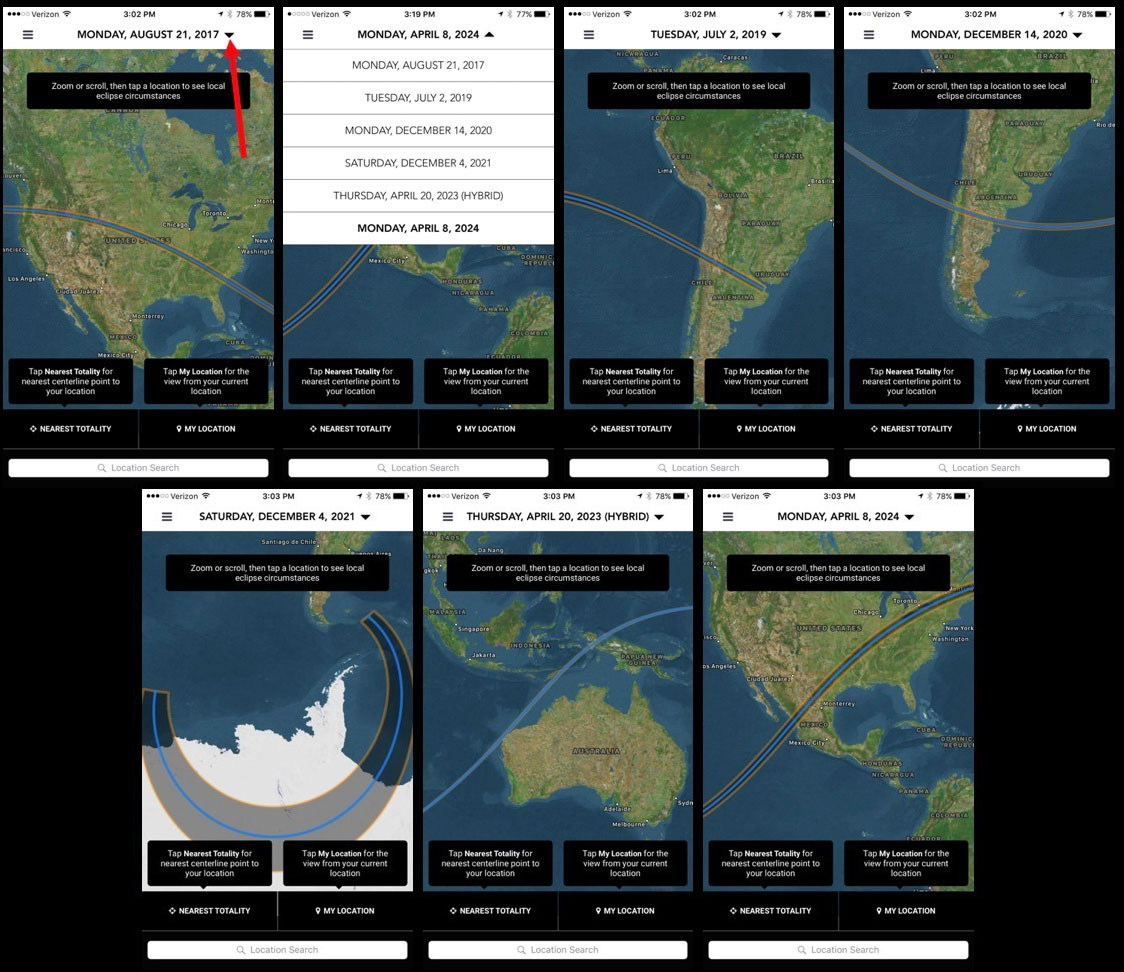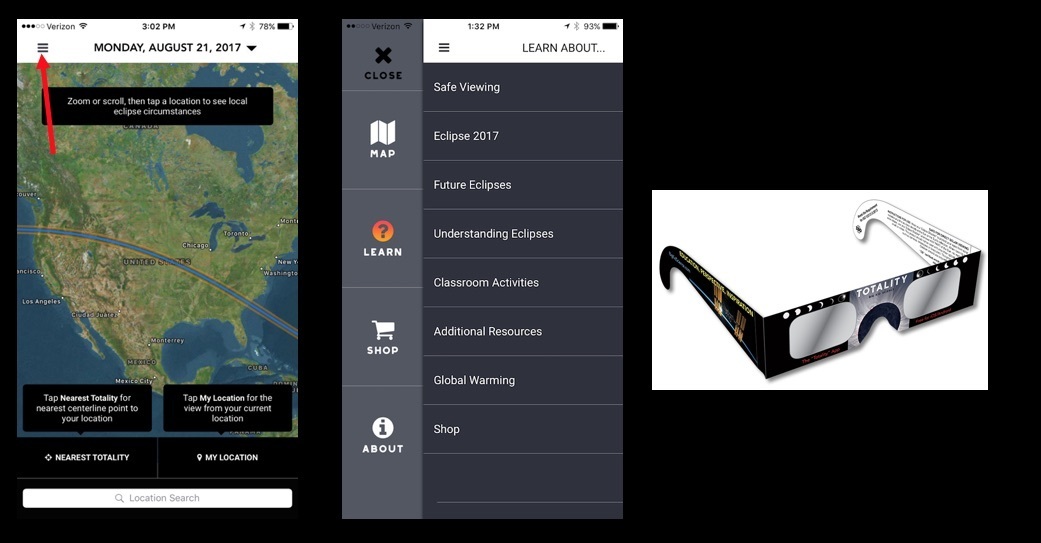This post also appears on my Huffington Post blog page.

(Rick Egan | The Salt Lake Tribune; used with permission) Darkness surrounds the ball park during the totality phase of the solar eclipse, at Melaleuca Baseball Park, in Idaho Falls, Monday, August 21, 2017, where the author of this article was speaking along with astronomers Nick Schneider and Erica Ellingson, and astronaut Alvin Drew.
I hope everyone had a chance to enjoy the Great American Eclipse of August 21, 2017. That eclipse may be history, but the experience can continue. Here’s my list of the three most important things you can do in order to keep the experience going.

You can use the Totality app to see maps for the next 5 total solar eclipses. Left to right: (1) The app begins with the 2017 map; tap the triangle indicated by the red arrow to (2) bring up the map menu, then select from (3) the 2019 eclipse, (4) the 2020 eclipse, (5) the 2021 eclipse, (6) the 2023 eclipse, or (7) the next USA eclipse on April 8, 2024.
1. KEEP your eclipse glasses!
- You can use your eclipse glasses to look at the Sun at any time, not just during an eclipse. If you have good eyes, you can sometimes see sunspots through the glasses, as many people did during the eclipse. If you watch for a few days in a row, you’ll notice that sunspots gradually appear to change position with the Sun’s roughly 25-day equatorial rotation period.
- Contrary to stories you may have seen about “expiration dates” for the glasses, you can reuse them indefinitely, as long as they meet the ISO 12312-2:2015 standard and you don’t damage the lenses. (See this NASA page if you want official verification of this fact.)
- If you have a large number of extra glasses, consider sending them to Astronomers Without Borders, who will put them to good use.
2. Reflect on the experience:
- For those who saw totality, imagine what you would have thought if you hadn’t known this was coming. That’s what our ancestors would have experienced for most of human history, explaining why eclipses inspired so much fear, and why so many superstitions and myths arose around them. Then consider the amazing fact that, today, thanks to science, we understand these events so fully that we can predict them centuries in advance.
- This marvel of nature should also remind us that we all share a small and precious planet, and that through education and science, we can all learn to work together to build better lives for our children and grandchildren. Note: You may wish to see my short Fox New interview on this idea posted at http://video.foxnews.com/v/5548342934001/.
- Eclipse predictions are based on what we call scientific models, meaning representations of nature based on known physical laws and observational data. I hope the fact that the eclipse occurred exactly as our scientific models predicted will inspire greater public confidence in in the fact that scientists really do know what they are doing, and that when the scientific community tells you of other things that are likely to happen — such as global warming — it is worth listening carefully.
- Parents and teachers can use the eclipse to inspire kids to learn more about science and mathematics, as well as other subjects; be sure to see our post-eclipse activity suggestions, accessible from within the Totality app or online here.
3. Plan for an upcoming eclipse
Those of you who witnessed totality probably can’t wait to experience it again, and those who missed it can hear from friends about why you’ll want to experience it in the future.
- Install the free Totality app to view maps for the next 5 eclipses (see figure at top of this page), including the next one in the United States on April 8, 2024.
- Learn more about eclipses and science in general. You’ll find great resources on the Learn screen in the Totality App and among the books available through the Big Kid Science web site.

Left: After opening the Totality app, tap the icon indicated by the red arrow to bring up the main menu. Center: Tap “Learn” to bring up the options for learning more shown on this screen. Right: Keep your eclipse glasses. If they meet the ISO 12312-2 standard, as our Totality app glasses do, you can use them indefinitely as long as the glasses are undamaged.
